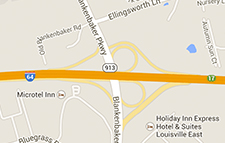Blog
Monday September 28, 2015
Private non-profits
posted by Oliver Barber, Jr.
Tags: Events
As you may or may not know, one of the things that I do for this law firm is represent private non-profits at the General Assembly as a lobbyist. For example, I represent the Dismas Charities, Inc. on issues involving community based programming and release of prisoners. I also represent Louisville Soccer Alliance and the Catholic Conference on issues involving Charitable Gaming. Finally, I represent the Kentucky Public Transit Association, a trade organization of all of the transit properties in the state of Kentucky.
Those properties would include the three large urban systems of TARC, TANK and LexTran and the small urban systems in Ashland, Owensboro, Bowling Green, Elizabethtown and Henderson; and the 24 rural public transit systems that provide transportation in nearly every county in the state and provide almost all of the transportation for indigent individuals who are served by VA Hospitals and the Kentucky Affordable Care Act.
I recently participated in a presentation to the Transit Budget Committee, highlighting the impact of public transit on the state of Kentucky.
Public transit in the state of Kentucky serves more than 31,000,000 passengers annually. They transport 11,000,000 people to jobs, more than 3,000,000 to schools and many more to healthcare providers and programs.
The public transit network is an integral part of workforce development in the state of Kentucky. For example, many major employers and their workforces depend upon public transportation in order to assist their workers. In Northern Kentucky, you have Citi Group, NKU, Amazon, Mazak and eBay.
In Central Kentucky, you have LexMark, University of Kentucky, Amazon, Central Baptist Hospital, Transylvania University, UK Healthcare and more.
In the Louisville area, you have U of L, Norton Healthcare and Humana, GE, UPS and Metropolitan Louisville.
There is a trend that has been developing and increasing over the past decade that shows that many employers rely upon public transit to deliver their workforce.
Unfortunately, public transit is not properly and adequately provided for in the Commonwealth of Kentucky budget. The biennial budget allocates $1.7 million each year of general fund monies for public transit statewide. These funds are used to match federal and local dollars. For every $1.00 that the state contributes, the public transit systems can leverage or receive an additional $9.00 from the federal government.
At this point in time, a total investment of $6.5 million would allow the transit programs to meet all the federal match requirements that are available to them. In other words, if the state of Kentucky puts up $6.5 million, then the federal government has got to put up 90% more than that.
My job is to make sure that these facts are imminently available and front and center for the members of the General Assembly to see and understand and presumably vote upon at the time that the budget is passed next April.
If any readers have any questions about these facts, figures or public transit in the state of Kentucky, or, for that matter community based programming for prisoners or charitable gaming, please contact Oliver H. Barber, Jr.
Comments




